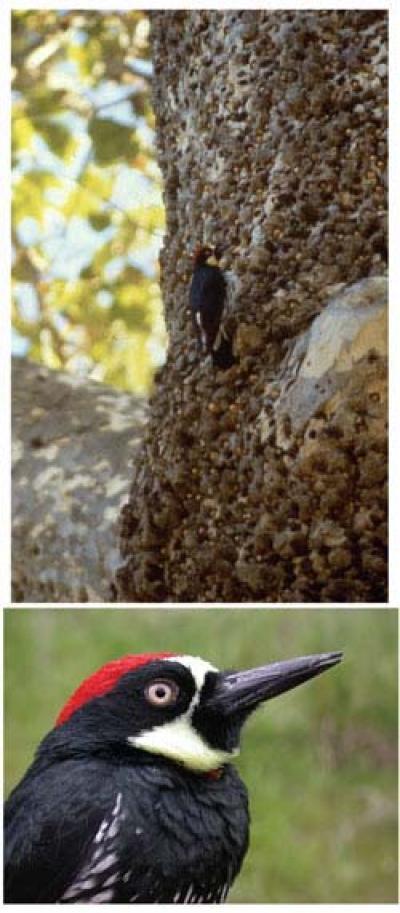Acorn woodpeckers are cooperative breeders, meaning adult birds often join breeding groups and help raise young that are not their own.
Scientists have long thought that communal breeding may have evolved to help birds deal with food shortages and other difficult times, but a study by researchers from Cornell and Gonzaga shows that for acorn woodpeckers, the opposite seems to be true: Help contributed by other family members is beneficial only when the acorn crop is large.
"Apparently when the crop is poor, the additional food that helpers provide to nestlings doesn't make up for the extra resources those helpers are using," said Walter Koenig, the study's lead author. "Whereas when the acorn crop is good, their help is enough to significantly increase both the survivorship of the other birds in the group and the number of young the group can fledge. At least in acorn woodpeckers, living together in a family only confers benefits when food is plentiful."

Above: an acorn woodpecker on its granary. Stored acorns are a critical food resource for this species. Below: an adult male acorn woodpecker. This species lives in family groups including helpers, who are young from prior nests.(Photo Credit: Walter Koenig ©)
Walter D. Koenig, Eric L. Walters, and Joseph Haydock, "Variable Helper Effects, Ecological Conditions, and the Evolution of Cooperative Breeding in the Acorn Woodpecker."